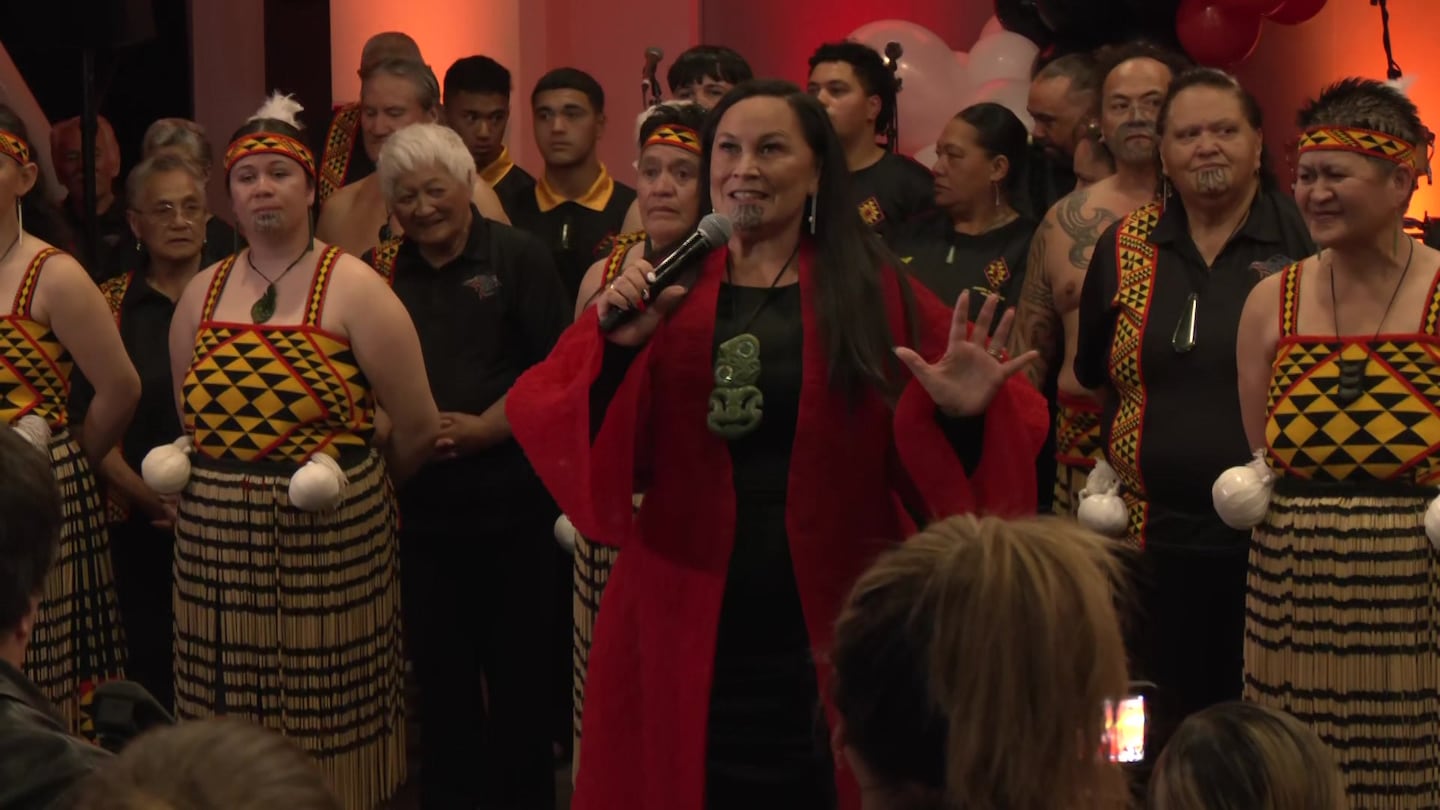Major change in the Māori electorates is on the cards, as Te Pāti Māori candidates threaten major upsets, which could see Parliament end up with an overhang.
The mood is electric at Te Pāti Māori’s Tāmaki Makaurau HQ. Each time the results come up on the screen supporters erupt into loud cheers and hoots.
Co-leaders Debbie Ngarewa-Packer and Rawiri Waititi are holding strong majorities in their respective electorates, Te Tai Hauāuru and Waiariki.
Hana-Rawhiti Maipi-Clarke, the party’s 21-year-old candidate, is currently leading in Hauraki-Waikato, ahead of incumbent Labour stalwart and Foreign Minister Nanaia Mahuta, who has held the seat since 2008.
In Tāmaki Makaurau, Te Pāti Māori candidate Takutai Moana Kemp is neck-and-neck with incumbent Labour’s Peeni Henare.
There could also be major upsets in Te Tai Tonga with Tākuta Ferris in front of Rino Tirikatene of Labour, and Mariameno Kapa-Kingi putting up a strong contest with Labour’s Kelvin Davis in Te Tai Tokerau.
However, Meka Whaitiri, who defected from Labour to stand for Te Pāti Māori in Ikaroa-Rāwhiti, could be booted out of Parliament - she is trailing Labour’s Cushla Tangaere-Manuel.
Te Pāti Māori president John Tamihere says they will answer the phone if National changes its mind and comes calling tomorrow, though he’s not giving their hand away yet.
National leader Christopher Luxon has previously ruled out working with Te Pāti Māori, saying while National had worked with the party under John Key the current party was much different and there was no “philosophical alignment”.
Tamihere said there was potential to work out an arrangement.
“We’re obliged to go back to our people after the votes have crystalised and then make a determination shortly after that.”
Earlier, Tamihere called for an immediate investigation into the Electoral Commission, saying a number of issues affected Māori being able to successfully vote.
“Early voting at places like Manurewa Marae and Hoani Waititi Marae started well but the commission failed to provide enough forms and were slow to replenish. During the official period whānau who went through the process of switching from the General Roll to the Māori roll have arrived to discover they are still on the general roll,” Tamihere said.
“The system is prejudiced against us with only one Māori voting book at each polling booth meaning our people are standing in long queues, discouraged while watching non-Māori vote with ease.”
In 2020 Te Pāti Māori got 1.2 per cent of the party vote.
-NZME


